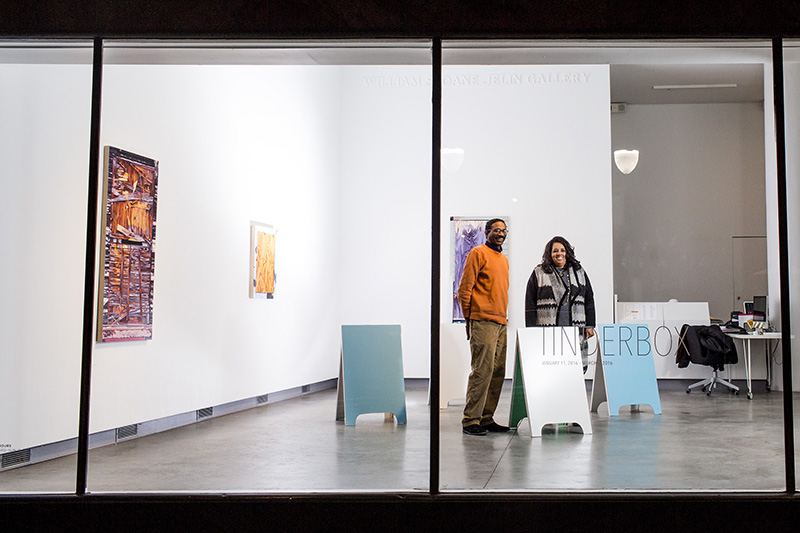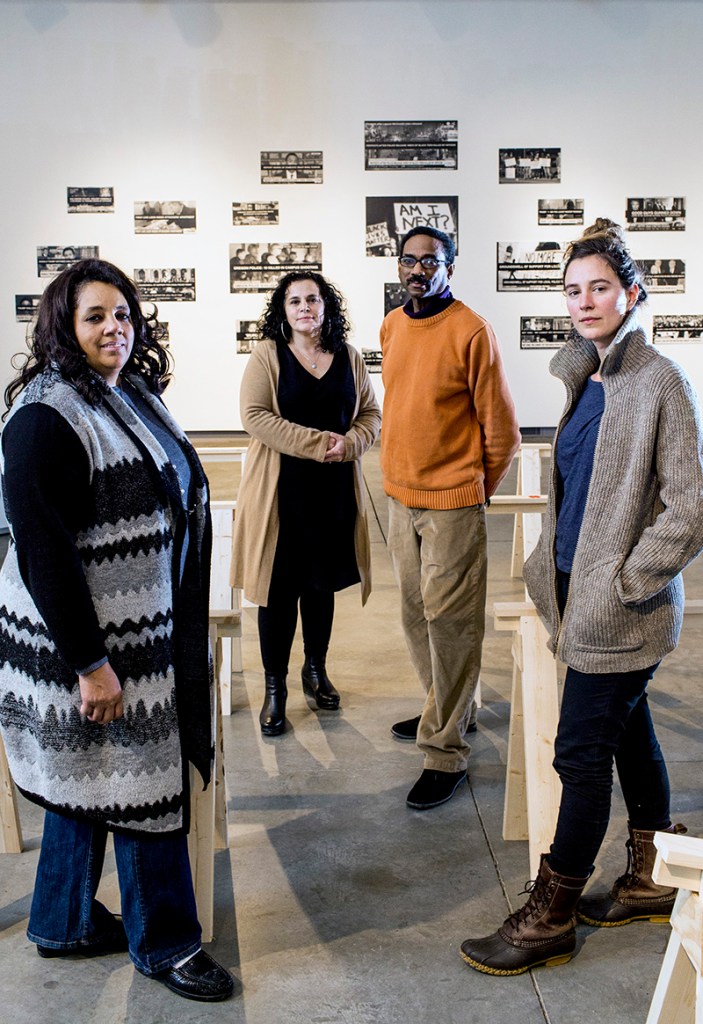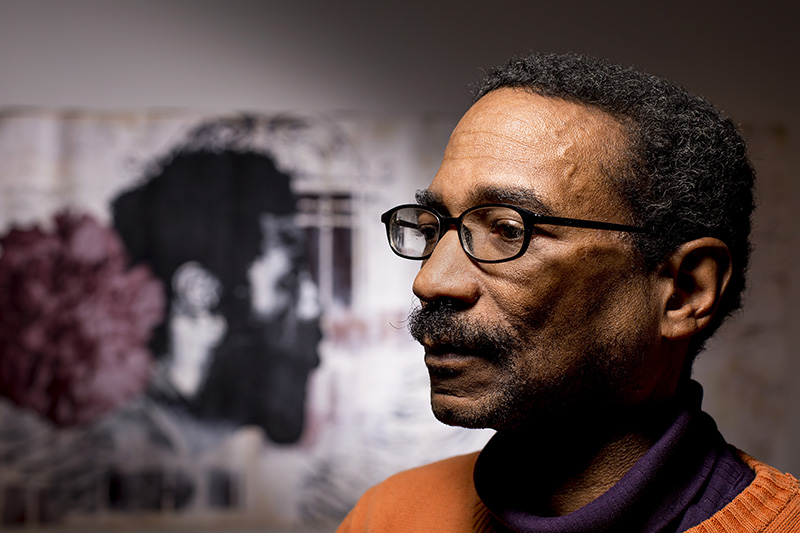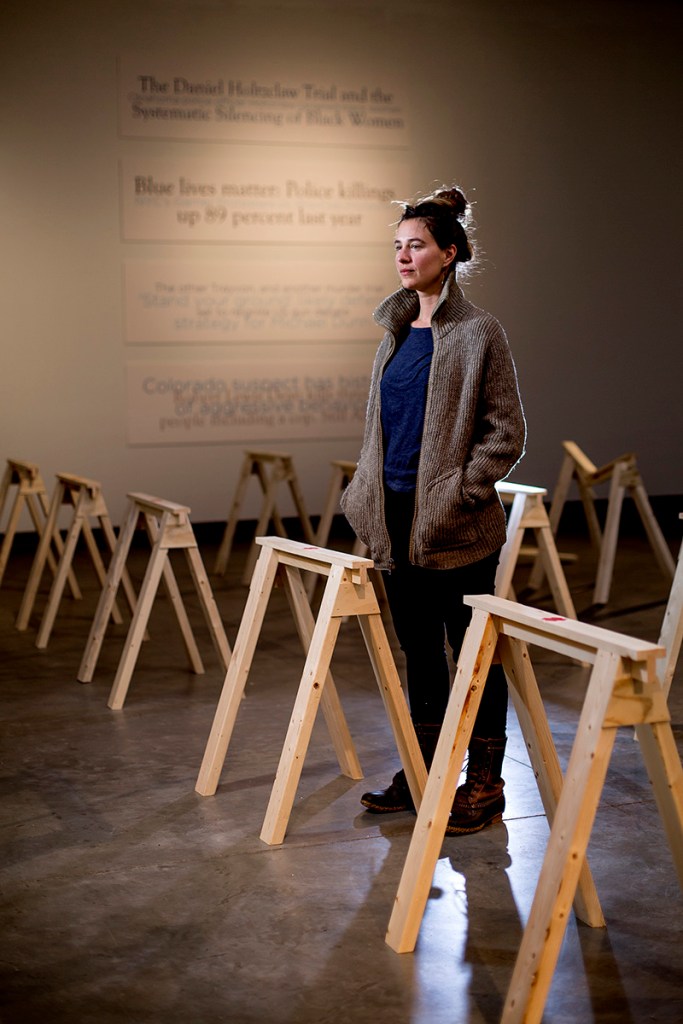Pam Cummings got chills when she heard her father’s voice. Its timbre, resonance and depth stayed with her long after she heard an interview a Maine College of Art student recorded with her dad, Leonard Cummings Sr. of Portland.
“Ten or 20 years from now, I can press rewind and forever be able to hear my dad’s laugh,” she said. “When you hear people laugh and hear voices cracking – you can’t get that with the written word.”
The MECA student collected the interview as part of a fall semester storytelling class. Students reached out to elders in Maine’s African American community to create an archive of stories to be housed in the Abyssinian Meeting House on Newbury Street on Munjoy Hill in Portland. The goal is to document the lives and stories of African Americans in Maine, so future generations can appreciate the efforts that were made to improve their lives.
In partnership with the Abyssinian, MECA will host a live storytelling program Friday night featuring snippets of those interviews, as well as other stories from the community. Elise Pepple, who teaches storytelling at MECA, will host the program, “Still Standing.”
The name “Still Standing” references the perseverance of African American elders, as well as the Abyssinian itself. The meeting house is among Maine’s most significant cultural landmarks. It was built in 1832, and is the third-oldest black meeting house in America. It survived Portland’s Great Fire of 1866 and was a hub for the Underground Railroad used by slaves to escape the South in the 1800s.
It was almost demolished in the 1970s, and is the focus of an ongoing effort to preserve and restore it.
Among those whose stories were captured by MECA students are the artist Ashley Bryan, longtime Portland residents June McKenzie and Marshall Santos, Seeds of Peace camp director emeritus Tim Wilson, and Cummings and his wife, Mary Jane. The students asked about their experiences in Maine, including the kinds of racism they have encountered. They asked the elders for advice for young people today and what they learned from their ancestors.
“Storytelling is as old as humans,” Pepple said. “Storytelling is a democratic art, because everybody has a story. Storytelling fosters connection and intimacy. So often, history can seem kind of boring and static. To sit down with a group of elders and hear such vital stories is the opposite of static. It’s dynamic.”
Although the elders are invited to Friday’s event, they are not expected to participate. Their voices will be heard on tape. Pepple will lead a group of storytellers who will riff on the “Still Standing” theme. The group that will perform on Friday includes Linda Ashe Ford, Lelia DeAndrade, Pamela Otunnu Porensky, Samuel James, Spencer Thibodeau and Elijah Whitehead.
The program will be at the Institute of Contemporary Art at MECA, which is hosting the exhibition “Tinderbox.” The exhibition examines the role of artists and communities in understanding the racial and class conflicts in America. The exhibition focuses how creative activism can improve dialogue and lead to understanding.
It’s a perfect backdrop for the “Still Standing” storytelling program, said James Ford, a former Abyssinian board president. Friday’s program celebrates stories from Maine’s past and present. The exhibition provides context for our times, and reminds us that the struggles of black people today are not that much different than the struggles of a generation ago, he said.
Send questions/comments to the editors.







Success. Please wait for the page to reload. If the page does not reload within 5 seconds, please refresh the page.
Enter your email and password to access comments.
Hi, to comment on stories you must . This profile is in addition to your subscription and website login.
Already have a commenting profile? .
Invalid username/password.
Please check your email to confirm and complete your registration.
Only subscribers are eligible to post comments. Please subscribe or login first for digital access. Here’s why.
Use the form below to reset your password. When you've submitted your account email, we will send an email with a reset code.